At 17, Will Larkins Is Living Their Best LGBTQ Activist Life
"I'm a 17-year-old student, with really no actual power, fighting against an entire system built to hurt me," says Will Larkins.

“The first time I said the words, ‘I’m gay,’ in front of my family was November of 2020,” says Will Larkins.
Yet even that experience wasn’t an “official” coming out. To hear the 17-year-old junior at Winter Park High School, in Winter Park, Florida, describe it, the revelation was more of an aside than a conversation.
“I knew that there was something different about me since kindergarten,” says Larkins, who identifies as both gay and nonbinary and uses multiple personal pronouns. “I just was different. And I knew that, but I didn’t have the words to describe it.
“Growing up, I was not educated on the queer community. Even though it was very blatantly obvious that I was queer in kindergarten, I didn’t have a label for it until seventh grade. I went to a small school, so I was the only feminine guy that I knew. It was like the boys were like this and the girls were like this, and then there was me.
“I didn’t really fit in with anyone.”
Ted Larkins, Will’s father, recalls his son’s refusal to engage in stereotypically “masculine” activities as a child, but never discouraged them from pursuing their own interests or likes.
“Will has always had the gay ‘tendencies,'” says the elder Larkins. “He never wanted to play ball. He wanted to play with girls’ toys and dress up. And we, as parents, never questioned it. We just encouraged whoever he was. And so, as it got further down the path, he was dressing very feminine and wearing nail polish starting when he was six or seven.
“Sometimes people would say, ‘Well, do you think he’s gay?’ And I always said, ‘Well, I don’t know. And it doesn’t matter. We’re just allowing him to be who he is.’ And so there was never any real coming out in my mind. It was just, ‘This is who he is.'”
Ultimately, Will Larkins’ embrace of their queer identity, and the role they took on as a co-founder of Winter Park High’s Queer Student Union, has coincided with efforts by Republicans and social conservatives in Florida to crack down on LGBTQ visibility in schools by seeking to ban classroom discussion on LGBTQ-related topics.
Earlier this year, Gov. Ron DeSantis signed a “Parental Rights in Education” law prohibiting teachers from raising or mentioning sexual orientation or gender identity — even in passing — in primary grades.
Critics, who have dubbed the legislation the “Don’t Say Gay” law, argue that its various provisions reach far beyond grades K through 3, and will result in censorship of both academic topics that touch on LGBTQ identity and students’ right to free expression.
Already, several different high school students across the state — who are ostensibly exempt from the bill’s restrictions — have claimed that teachers have proactively warned them against speaking about their identity or LGBTQ topics in class, with two of those older students joining a lawsuit challenging the law’s constitutionality.
One of those students, Zander Moricz, the senior class president at Pine View High School in Osprey, Florida, claims that school officials threatened to cut off his microphone during his graduation speech if he mentioned anything overtly political or spoke about his past LGBTQ activism.
In Longwood, Florida, a suburb of Orlando, school administrators at Lyman High School held up distribution of student yearbooks because they contained pictures of a student-led demonstration protesting passage of the “Don’t Say Gay” bill.
Administrators claimed that because the protest was not sanctioned by the school, the pictures of the demonstration would have to be covered up by stickers before students could receive their yearbooks. The Seminole County School Board recently voted unanimously to halt that censorship, saying they’d pay for smaller stickers that did not cover up the photos and that explained that the protest was not school-sanctioned.
For Larkins, the fight against the “Don’t Say Gay” bill became a personal cause, prompting them to travel to the state capitol in Tallahassee in order to testify against the bill, organize other students in the Queer Student Union to write legislators and warn of the negative consequences of the law, and working with another student to help organize Winter Park High’s own walkout, which was one of several dozen taking place in high schools across the state.
“It became important to me that the bill didn’t pass,” they say. “I hopped in and got involved because I felt I had to — there was no other option. I couldn’t just let that happen, especially being an advocate already within my school. I would have felt like a bad person if I hadn’t. I had the ability to be involved, so I had to. I had to just for the survival of my community.”
Shortly after the law passed, even Larkins ran afoul of administrators attempting to preemptively enforce the law, which officially goes into effect on July 1. The inciting incident was a presentation Larkins gave on the Stonewall Riots — a seminal moment in the history of the modern-day LGBTQ rights movement — to their history class, as part of a unit examining the various social movements of the 1960s and 1970s.
Proponents of the “Don’t Say Gay” law have argued that academic topics that are “age appropriate” or “developmentally appropriate” will not be censored. Based on that criteria, it would seem that a presentation to a classroom of 16- and 17-year-olds focusing on a well-documented historical event relating to a social movement from the 1960s, would fall into permissible terrain.
However, it appears that, in practice, administrators can flag or ban any content they personally disagree with, that makes them uncomfortable, or that could potentially be used by conservative parents to justify bringing a lawsuit against schools and school districts, resulting in a chilling of select free speech rights.
Larkins’ presentation was filmed by a fellow student and posted on social media, where it went viral. National publications soon picked up the story — including several that took issue with Larkins wearing a red cocktail dress during the presentation — and Larkins was soon informed that they were being “investigated” for their report.
The backlash continued after administrators reassigned them to another history class at the request of the teacher, who had initially signed on to the presentation but became angry when it was publicized.
Despite that minor setback, Larkins has continued to push for Winter Park High School to adopt policies that make school safer for LGBTQ students, and has testified before the local school board opposing efforts to censor some more controversial LGBTQ-themed books. They regularly use social media accounts to offer opinions on various topics they feel passionate about.
In one recent instance, Larkins posted a Twitter thread in which they tagged all three Democratic contenders seeking to be Florida’s next governor, asking what they would specifically do to overturn anti-LGBTQ policies and protect LGBTQ rights. All three responded to the thread — demonstrating the influence that Larkins has by leveraging the publicity they’ve gained from their activism.
“It’s been really weird,” they admit. “I get recognized sometimes. All of my friends’ parents know me in a way that they didn’t before. Every time I meet people, they have heard of me or their parents have heard of me, at least locally.
“I just want to make sure I’m able to use this platform properly,” they continue. “Part of me is worried, because I’m 17. I’m a child. I’ve never been an activist influencer before. My main goal is to figure out how I can most effectively help those who don’t have the platform that I do. Because I’m not the only young activist at my school, or in my district, and definitely not in Florida.
“So I’m trying to use the platform that I’ve been so lucky to have been given to inspire my generation to be more involved, and to register people to vote, and to vote, and to run for office. I want to be able to use my platform and “power” to inspire others, and also help get this important messaging out there.”
Ted Larkins says his son has always been persistent when they feels passionate about something, continuing to strive for goals until they achieve them. While he has been proud of Will’s determination to stand up for what they believe in, he is concerned about some of the heated and nasty rhetoric that Will has already received from opponents of LGBTQ rights, some of whom message to accuse Will of being a “groomer” or threatening violence against them.
“There’s some really scary people out there,” Ted says. “I don’t understand what is so threatening about somebody being gay, but they are adamant and they’re scared and don’t want to face it. And they judge it as wrong. I feel Will’s okay, and I know he’s really stepping up and making a difference for other kids, which is really important. But I know that, as this becomes more in the public light, people who don’t like it will step up even more as well.”
Ted notes that his relationship with his son has forced him to reexamine how he supports Will’s actions and his own level of involvement in fighting for LGBTQ rights.
“I’m a straight guy and I’ve had gay friends,” he says. “My sister is gay and has been out for 35 years. But I didn’t think anything of it, except that I just wanted my son and my daughter to be whoever they wanted to be in life…. It’s all good with me.
“I was in the kitchen about a year ago and had just hung up an LGBTQ flag outside. And I was with my girlfriend and Will and some friends and we were talking, and I said, ‘Yeah, I’m all for gay rights.’ And Will said, ‘Yeah, you do the minimum.’ And of course my girlfriend said, ‘Oh my God, he does everything for you.’ And Will said, ‘No, he does the minimum. He hung a flag up. Thank you. What else are you doing to really stand up for us?’
“And it just hit me, like, ‘Oh my God, I don’t do a lot.’ It’s then I started saying, ‘Okay, I’m going to go to rallies. I’m going to support Will as much as I can.
“When the kids were young,” he continues. “I read in a parenting book that if you want to have a relationship with your kid, get on the floor and play with Tinker Toys. As they get older, play the shoot-them-up video games with them. Don’t say, ‘I don’t want to do that.’
“And it’s the same with their activities in the gay community. Not only just be okay with it, but support them. If you want to have that relationship, make that relationship. As a parent, that’s your responsibility. And you have the ability to do that by simply being open and accepting them as who they are, whatever that looks like.”

METRO WEEKLY: If someone asked you the question, “Who is Will Larkins?” how would you best describe yourself and your personality?
WILL LARKINS: I’m generally a very sociable person. I love making friends, going out on adventures, meeting new people and learning about them and their lives. I love art. I love painting. I love clothes. I love thrifting and finding things and turning them into something, decorating and making the world prettier. I love going out and just painting random abandoned, ugly blocks of concrete. After this call, a group of friends and I are going to a forest to paint this old giant cinder block, and also clean up all the trash that’s there. That’s kind of me. I think I’m just adventurous and artsy.
MW: Were you always that way, even as a child?
LARKINS: One hundred percent. I was always wanting to try something new, always wanting to see the world, and loved just being very creative. But I’m also always ready to sit down and be serious and work on something until I’ve solved it, or until I have started moving [on] it, whether that’s a social issue or a math problem.
MW: What else would you like people to know about you?
LARKINS: On a sort of deeper level, I guess, that homophobia really does affect us. Even though I’ve had a lot of support, I have been at a very low lows after facing homophobia. This winter I really thought I was going to end my life, and it was because of the stream of homophobia and harassment at my school.
I want people to realize that behind the activism, that the reason I’m fighting as hard as I am is because I have to, because I’ve been at that low and I don’t want anyone else to have to go through that.
I’m just one of millions going through really horrible stuff because of our identities. Just reminding people that young people are people, that queer people are people, and that these attacks on LGBTQ people are hurting people and will increase suicides and self-harm and drug abuse. It’s really frightening.
MW: How did you get to that low point, and how did you get out of it?
LARKINS: There were a couple of main things that happened that put me there. I was already going through a lot. Last year, we were coming out of COVID, and there was a lot of family stuff that wasn’t good. I had already had a very depressing 2021, but I had been doing better since the summer. Then I started going to school and I tried so hard to enjoy it as much as possible, but by October I had been relentlessly gone after. Even though I had a big support group and I had a lot of friends and I was generally popular within my school, I was also just getting so much hostility coming at me.
In early October, I met a guy I really liked, and we started dating, but then his dad almost found out that he was bi or something, and was like, “If I find out you’re fucking fag, I’m going to beat you and your fucking faggot boyfriend to death.” And so we had to break up out of safety.
Then I went to this Halloween party where I was invited, and I was excited. It was going to be my first high school party, because COVID had happened the year before that. It was really weird to not feel welcome for just existing, because I wanted to just be like any other high schooler, have fun, go to a party. We were literally kicked out, and we were harassed, and it was really frightening.
The party was just a tipping point. I regularly had people making horrible comments to me in the bathrooms and while I was walking along the side of the street, walking home from school, whatever. I went to [a] teacher and talked to her about this. She opened up to me about how she’d experienced similar stuff when she was my age. By talking about her experiences — and this is another thing I’m worried that the “Don’t Say Gay” bill would take away from me — it opened up this light at the end of the tunnel.
Even as horrible as things got during the winter, and even though I was depressed and more bad things happened, I think the two main things that got me through it were talking to this teacher and just knowing that how high school feels is not permanent — it’s not forever — and the fact that I had to get through the winter if I was going to be able to be a voice for others.
Now I’m doing better, but it was homophobia that put me in that place, that put me in that very, very low, dark, awful place.

MW: Do you feel you’re out of that place now, able to function in your day-to-day life?
LARKINS: Yeah, back then it was really just a feeling of I can’t get out of bed, can’t go a day without overusing various substances. I literally couldn’t even shower, because if I was alone with my thoughts, I would just have a breakdown. It was really bad. But now, I’m always doing things and have meetings and interviews and things I have to plan.
I get so many messages from people saying, “I read your New York Times article and it saved my life because…” and I believe them, because I’ve been at points where I’ve read something about queer people who have been here and gotten through it, and that saved my life. So now I’m that person for other people.
There are moments where I feel like I could fall back, but I can’t because I have something I have to do for others. I definitely feel like I’m better now. I’m happier now, even though things are technically worse [following passage of “Don’t Say Gay”].
I’ve still had moments where I’ve broken down, just crying from stress. I had a panic attack so bad that my parents called the ambulance because they thought I was dying a few weeks ago. So I’ve been under a lot of stress recently with the amount of work I’ve been doing and trying to keep up with school work, and then being in school, which feels very trivial with the activism work I’ve been doing.
MW: Have you figured out how to cope with that stress?
LARKINS: Well, after my story went viral, I was just saying “yes” to everyone, like interview after interview after interview, back-to-back meetings every single day for weeks. I think that was important for the time, because I needed to boost my platform so I could be more effective.
But now I’ve been focusing on self-care a lot more. I’ll do meetings and I’ll plan things, but I’ll never let things overlap anymore. I pick a couple of days, and I plan everything for those days and I just let those be the full days of work. And on every other day I don’t have things planned. I turn off my phone in the morning and then I just can live my life and not think about anything for the rest of the day. I’ve had to sort of split it into a work-life, and then the rest of my life.

MW: What’s been the reaction, of both your parents, and the larger community, to your involvement in LGBTQ issues, whether it’s speaking up against the “Don’t Say Gay” bill or organizing walkouts with your fellow students, or testifying in front of the school board on book bans?
LARKINS: My parents have been just chill about it. They’re obviously proud. They’re literally just not that surprised, I guess. They just enjoy that it’s happening.
In general, there’s a lot of different reactions, I guess. I’ve had a lot of people from my school, and alumni, be very happy to see everything happen, because Winter Park is known for being not the most diverse or accepting. I’ve enjoyed that reaction because I know how the school’s reputation is. Seeing the opposite of that come out of the school is really beautiful.
MW: Let’s talk about the reputation Winter Park has.
LARKINS: Winter Park, as a whole, is a very wealthy area. Generally, my school is known for being racist and homophobic. That’s the reputation that it has around my district, as conservative, wealthy, homophobic, and racist. There have been so many hate crime-type situations that have made the local news that have come out of Winter Park. It’s kind of absurd.
Earlier this year, for example, some kid drew swastikas and then a bunch of various slurs, and saying that he hates gay people, and Black people, and stuff on a bunch of the bathroom walls. My school also had the Confederate Flags etched into the pavement by the school, that had been there forever, taken out this year. Last year, someone got beat up for being gay, or something like that. I don’t remember. This is my first year at the school [due to homeschooling during COVID], but I know that there’s been past situations that have not been great, if you look into Winter Park’s history.
MW: Let’s talk about your work co-founding the Queer Student Union at your high school.
LARKINS: It was a survival thing. My queer friends and I had dealt with a lot of latent homophobia in the first semester at my school. There were just a lot of situations where people would gang up on me, or film me, or just be generally pretty rude, or homophobic. I would either call it out or bring it to the administration. It felt like nothing was ever being done. Worse than that, the perpetrators of the homophobia were being protected instead of us.
My friends and I went to this Halloween party I mentioned before, and at the party, about ten guys surrounded us and they called us slurs and told us we “fuck kids, and fuck animals.” Then they threatened to beat us up if we didn’t leave. I posted a video of this happening and tagged the guys involved on Instagram. And the school, instead of getting these kids in trouble, called my parents and said, “Your son is putting these kids in danger because he posted a video of them.”
Afterwards, my friend Sawyer and I started the Queer Student Union. The goal was to change the culture within our school and turn it into a safer environment for the LGBTQ community. We also came to this realization that if this is happening to us, then it’s happening to other kids, but at least we can speak out about it and not be worried about being kicked out, or being abused for being queer, which is a privilege that not everyone has.
MW: Did you receive pushback from administrators when you started the Queer Student Union?
LARKINS: Not outwardly, I don’t think so. Not right away. There were rules we had to follow, some of the things we wanted to do. A lot of kids struggled to report things, because kids have been outed accidentally when reporting homophobia before. We wanted to initially be like, “Come to us, and then we’ll help you handle the situation,” working with the administration, but we weren’t allowed to do that.
The first thing we did was put up poster. We put up posters that said being gay is not a choice and everyone should feel safe at school, and some that said queer teens are four times more likely to commit suicide, and then with more information on how to join and stuff. Unfortunately, it became a trend among students to rip down these posters. There’s literally videos of people just tearing down the QSU posters.
MW: Let’s talk about the history lesson that got you investigated by the school.
LARKINS: We were studying the late sixties/early seventies. We were learning about the Vietnam War and hippie protests. And I knew, off the bat, that we were not going to learn about Stonewall — Queer history is not taught. Sometimes it’s mentioned, but it’s not part of the curriculum. But just out of curiosity, I stayed after class and asked my teacher, “Hey, are we going to learn about the Stonewall uprising?” I knew the answer was going to be no, but I didn’t know she was not going to know what it was. She told me she hadn’t heard of it. So I asked her if I could do a quick presentation on it. She said, “Yeah.” And I did.
Now, I didn’t get in trouble for the presentation, I got investigated because there was a Washington Post article about it [after video of the lesson went viral]. I ultimately didn’t end up getting in trouble. The girl who took the video of me did, which is absurd, because she wasn’t going to get in trouble before, and a bunch of other kids also recorded it, and none of them got in trouble. But the girl got in trouble because the teacher was mad at me for getting in the news over the lesson. At least that’s what she told the administration that she was upset about. None of us can figure out why she was mad. My administrators couldn’t figure it out either. We were all wondering.
I got switched to another class that’s four weeks behind. We’re still in the Vietnam War unit, and I did that a month ago. I’m doing a bunch of extra work, which is annoying. I never spoke to the teacher again. That was that.

MW: What’s your relationship with your new teacher like?
LARKINS: I’ve had no issues, really, with the new teacher so far. The teacher actually, in the classroom, had a giant, “Don’t Tread on Me” flag. I reported it to the administration, because even though I know the original meaning was just, “We’re going to beat the British during the Revolutionary War,” neo-Nazis fly it today. It got taken down right away, and I talked to him about it, and I don’t think he understood the modern implications of it, and had hung it up because it was a historical thing. But so far, I’ve had no problems in that class, other than the fact that it’s way far behind my old class, which is annoying.
MW: Back to the Stonewall presentation. Do you think the outsized reaction to the viral video was because of what you chose to wear in the presentation, or was it the content?
LARKINS: I think it was a combination of the two. Me wearing the dress in that video — it’s so funny that so much attention was put on that, because I made the presentation probably a week before I did it, and I sent it to the teacher, and she just said, “I’ll tell you the day that you can do it.” I did not dress up to give that presentation. I just happened to be wearing a red cocktail dress the day that the teacher asked me to give the presentation. Had I been giving the presentation or not, I still would’ve been wearing the dress. That is how I live my life.
The reaction online was, “This kid literally got dressed up, not only going to school in Florida, cross-dressing, and teaching about Stonewall after the ‘Don’t Say Gay’ bill was filed.” Even though none of those three things were related, and I was going to do this regardless of whether the bill had been passed or not.
MW: From an outsider’s view, the kids in class in the video don’t seem shocked that you’re wearing a dress. They almost look bored. They’re on their phones underneath the desk, or there’s one kid that’s texting.
LARKINS: It’s because I do that every day, and I have since the beginning of school. Even the kids who initially were shocked are now used to me showing up to school in a wedding dress, or in drag makeup, or whatever it is. I showed up in that class one time in stilettos and a pink crop top, pushing a pink shopping cart.
It’s almost good that they seem bored, to me, because it shows that these kids who, initially, were like, “Whoa, what are you wearing?” in the beginning of the year, are now, “Whatever, that’s Will speaking out against something.” In that class, I was the kid who would raise my hand and be like, “Actually, at this time, here’s what marginalized groups were experiencing, and actually, this is a skewed version of reality.”
One time I had gotten into standing up and yelling across the room with this one kid, and my teacher, because the kid and the teacher were saying that The Black Panthers were too radical. I was saying, “No, they were not.” Kids were used to me being like that. I had stood up and explained historical LGBTQ events before. During the Red Scare unit, I straight-up interrupted my teacher and explained the Lavender Scare to people.
MW: What’s been the reaction from other parents to your fight against the Don’t Say Gay bill? Are groups like Moms for Liberty or parental rights organizations proactively attacking you or trying to dismiss you?
LARKINS: It’s been mostly support. I’ve literally had random parents and stuff come up to me outside of school, or in other places and be like, “I’m so proud of you for everything you’re doing.”
The Moms for Liberty, when I spoke at the school board, they thumbs downed everything I said, which is weird because I was mostly talking about how queer people kill themselves. I was like, “I don’t know how you can possibly thumbs down that. It’s just true.” Those groups have kind of left me alone. I think it’s because I’m a minor, and because I’m still in high school that they really can’t pretend like they’re protecting kids and then blatantly attack me. But I’ve had a lot of online hate — an absurd amount, hundreds of comments a day on Twitter, and TikTok predominantly, calling me a groomer, and a pedophile, and calling me slurs and stuff.
It’s crazy the amount of homophobia in my comment section from adults. And then just random “personalities,” I guess, just random people who are verified and have a couple hundred thousand followers for having a podcast or something will tweet, “This is so stupid,” in response to what I post and stuff. It’s weird. They send their little hate demons on me, but Moms for Liberty has left me alone. Most actual people have left me alone, I guess.
MW: Is the abuse mostly online?
LARKINS: So far. I’ve not gotten anything to my face. Since all of this has happened and I’ve been speaking out, more people at my school have been nicer to me. I used to deal with day-to-day harassment and that’s pretty much stopped. That’s good. It’s nice seeing that real people outside of the Internet treat me like a person.
MW: Supporters of the “Don’t Say Gay” law argue that this fight is about parental rights, and that parents should have a right to know about what’s going on with their children in schools. That message seems to have a lot of political traction, not just in Florida, but across the country. What do you say to parents who might not even be conservative, but are worried that schools are indoctrinating their kids?
LARKINS: Well, first of all, “parental rights,” in the way that people mean that phrase in this country, and in Florida, are not really about parental rights, but an attack on students’ rights. They are an attack on the right of kids to be safe and to be educated. Students and young people, regardless of our parents’ beliefs, have a right to education in this country. I have a right to learn about what’s going on around me. I have a right to go to school. Parents shouldn’t be manipulating that.
The “Don’t Say Gay” bill is not just an attack on the queer community, it’s an attack on education as a whole. If they’re saying that it is their right to choose what kids learn, that’s an attack on a student’s right to knowledge. Children should have the right to a safe space at school where they can learn without being subject to indoctrination by their parents. Otherwise, you’re going to learn a skewed version of the truth instead of the truth.
I know some families who are so religious that, given the option, they would never teach their kids that the queer community exists. They would never teach them even about the existence of other religions. There’s some people who wouldn’t teach their kids that the earth is round if given the option, but they don’t get to choose that because it is a fact that the world is round.
Parents can’t just decide, “Well, I don’t believe that so I’m not going to let my kid learn that.” That’s what the “Don’t Say Gay” bill is. That’s what these book banning bills are. That’s what the “critical race theory” attacks are. These parents would rather teach a skewed version of reality, or a bigoted version of reality, whether that’s Black history, or the existence of LGBTQ people, than let their kids know the truth.
MW: Supporters of “Don’t Say Gay” will often emphasize the ban on LGBTQ content in primary grades, asking people, “Do you want your four- to nine-year-old being taught about gender identity?” And even a lot of liberal parents get squeamish about that. At the same time, though, the enforcement of the law seems to be primarily carried out at the high school level in the form of censorship, as with you, as with the high school-aged plaintiffs who are suing to block the law. How do you educate people about that problematic censorship in older grades, which seems to be ignored?
LARKINS: I always bring up the special magistrate when talking about this, because what the bill does is it introduces a special magistrate into every school district that is assigned by the Commissioner of Education, who is appointed by Ron DeSantis.
If a parent deems anything to be anything related to sexuality and gender identity –- and again, “sexuality and gender identity” is anything related to the queer community, whether that’s history, whether that’s sex education, whether that’s just the existence of queer or trans people — they can challenge it, and it will go to the special magistrate, and it will fast track the legal process, and they’ll be able to sue the school, the district, and the teacher.
Unfortunately, some bigoted parents will think anything LGBTQ-related is age-inappropriate. And even if there are zero parents at a school who will sue, teachers are still going to be afraid to have these very vital conversations about the existence of our community, at any age, out of the fear of being persecuted, or the fear of repercussions.
MW: Because there’s a chance that anything could be deemed “developmentally inappropriate.”
LARKINS: Yeah. Again, my presentation on Stonewall, that’s not age-inappropriate, especially if you compare it to other stuff we have learned in history class. But, because it falls under the umbrella of “sexuality and gender identity,” if a parent looked at that video, and saw me talking about lesbians and trans women getting assaulted by police at Stonewall, or even just talking about Stonewall, and they were like, “I don’t want my kid to learn about that,” they could challenge my teacher, school, and district, and it would go to a special magistrate, and not even go through a normal legal process. That’s horrifying.
On the other side, the complete ban on the instruction of sexuality and gender identity in K through third is also terrible. I would argue that learning about sexuality and gender identity is most important in those formative years. If someone had told me, “Queer people exist in K through third,” I wouldn’t have dealt with the amount of self-hate and bullying. The thing is, bullying at that age, it’s not homophobia. It’s not based on stereotypes. It’s really just out of confusion. It’s kids being like, “Oh, that kid is different from us.” What else do you do? You are mean, and you don’t even realize what being mean is.
Sometimes it’s just comments or questions that are rude, and hurtful, that aren’t even made on purpose. Had there been any education on that issue, it would’ve saved me from so much internal confusion, and self-hatred, but also would’ve saved me from a lot of playground meanness.
It’s not about sex, either. Parents can say, “Oh, this is about sex. I don’t want my kids to learn sex ed” all they want. An amendment was filed in the appropriations committee by [Senator Jeff Brandes] that would have changed the wording of the bill from, “Sexuality and gender identity,” to “human sexuality.” It was shot down by Republicans, because it’s meant to be an attack on the queer community.
MW: Why do you think that amendment has been so under-reported?
LARKINS: People don’t know about it. Every time I tell people about this, most people don’t even realize that there was another option. If they were being truthful about the intentions of this bill, that amendment would’ve passed. On the other side of that, if the amendment passes, it makes the bill less controversial. Unfortunately, we live in a world where people profit off of controversy.
It’s not been reported as much, because the two sides then can’t be pinned against each other as effectively. It should be talked about, because that is good messaging for our side. It is so important to know the true intentions behind the people who are passing this legislation.

MW: There’s this emerging trend of calling opponents of the bill “groomers” in order to portray them as a danger to children.
LARKINS: Even I get called a groomer, and I’m literally 17. They’re like, “You’re grooming children.” I’m like, “What are you talking about? I am a child.” It’s so stupid.
MW: Let’s talk a bit about the underlying assumption of that charge, which seems to be that people are only queer becuase somebody has corrupted them or done something terrible to them during their childhood.
LARKINS: There’s a lot I have to say about this. First of all, it’s hilarious, because nobody ever did corrupt me. I, luckily, was not assaulted or anything as a kid. But I was fucking gay anyway.
Nobody told me that the queer community existed until seventh grade. Bless my parents’ hearts. They’re so sweet. But I had gay aunts, and they didn’t even really explain that they were together. So I didn’t even know that queer people existed until seventh grade. I wasn’t exposed to the gay community. I wasn’t exposed to drag. The moment I learned the queer community existed, I thought, “Okay. Well, that’s me.”
I was already a feminine guy way before that. I was already openly pretty obviously non-binary and/or gay from a young age. It’s not a conscious decision that anybody makes.
The groomer rhetoric is literally just a new age version of calling queer people pedophiles. If you look at the entire history of homophobia, not just in the United States, but just in general, it almost always goes back to this idea that being queer is the same as being a predator, that being queer is inherently perverse or sexual. It’s not. But this is just a new age example of an age-old stereotype that has been used as an excuse to oppress our community and murder people, literally harm people.
This whole groomer rhetoric started with [DeSantis Press Secretary] Christina Pushaw. She went on Twitter and said “Don’t Say Gay” was an anti-grooming bill. It started with that one tweet. Then it became her attacking Equality Florida’s communications director and calling him a pedophile twenty times — completely baselessly. Then it became a normal thing. It started with, if you are against House Bill 1557 in Florida, you’re a groomer. Then it became, if you’re on the left, you’re a groomer. Now, it’s if you’re on the left or you’re gay, you’re a groomer.
I’ll get comments on posts unrelated to the “Don’t Say Gay” bill, where I just talk about my day or I post a photo. People were calling me a groomer in the tweet of me in the red dress teaching about Stonewall. That really didn’t have much to do with the “Don’t Say Gay” bill. But people were still calling me a groomer for teaching the existence of the Stonewall Uprising to 17-year-olds. And I’m 17. People were in that comment section saying I was grooming the children in that video, some of whom are older than me.
It plays into two big stereotypes, the QAnon conspiracy theories about people on the left being pedophiles, but it’s also targeting the queer community again. We fought so hard to undo this stereotype over the years. Now, it’s back.
MW: What do you think fuels this obsession on the political Right with this idea that pedophiles are lurking around every corner, in the schools, in the government?
LARKINS: I have no idea. I think it’s just because it’s effective. I hate being called a pedophile. It’s disgusting, because it’s not true. And the fact that some people do that shit is awful and horrible. It’s just mutually agreed by everyone that pedophilia is bad. So it is very effective in attacking people.
I know a lot of people who, if they were in my position, if they were getting the amount of comments that they were calling them a groomer, they wouldn’t have been able to handle it. No 17-year-old should have to go through that.
I also think it’s projection. Because it was the Catholic church that got exposed for being full of pedophiles, and it was some members of the Republican Party who got exposed as pedophiles. So now, that’s being turned against the queer community.
MW: Do you ever get frustrated by the hateful comments you receive on social media? What toll does that take on you personally?
LARKINS: It tires me out a lot. I’m just so exhausted right now. Since the beginning, it’s been an exhausting fight. You do so much, and you work so hard, and things change, and then they don’t. It feels like exactly what it is. I’m a 17-year-old student, with really no actual power, fighting against an entire system built to hurt me.
When I was up in Tallahassee, we had so many people come and speak, and cry, and tell the legislators facts about the bill. And then to have them completely ignore us, and have them not look us in the eyes and pass the bill anyway, it was so frustrating.
And that happened every single day on a host of issues: abortion bans, attacks on education, and attacked on marginalized groups, immigrants, people of color, and queer people. It’s horrifying. And it’s getting worse. We’ve been fighting so hard against the “Don’t Say Gay” bill in Florida. Now, there’s ten more in other states. The more I get involved, the more endless the fight feels. Just as we’re making progress in our school, something happens and we go backward.
After organizing the walkout, I was feeling great. I was like, “Wow, we really did change the culture of our school and things are going to be better.” Then the kid who ripped up the Pride flag at the walkout and stepped on it was allowed back in school and they unexpelled him. Then yesterday I found out that one of my friends had a substitute teacher call them by their deadname, and basically say that they’re not going to use the proper name and pronouns. They made that proclamation in front of the whole class, and then my friend got in trouble for scratching it out on the roster or something. It’s on a school level, and then on a statewide level, and then on a countrywide level. It feels like we’re fighting so hard against people who have way more money and power and are way better organized.
Sometimes I’m like, “Is what I’m doing, doing anything? I’m putting so much of my life into this. I’m falling behind on school. I’m so stressed out. I’m exhausted. I could sleep for days.
Even the March For Our Lives, those protests were huge, but nothing happened. I actually organized a walkout in my middle school in seventh grade, but almost no gun legislation has passed. It really feels like the people no longer have a voice in this country, because one side was able to gerrymander and suppress voters and lock themselves into this position of power.
MW: At some point going to graduate, and perhaps leave the state of Florida. Do you have any clue about what you’re going to do in the future? Do you feel that activism will always be part of your life?
LARKINS: I don’t know. I mean, it just all changes so fast. I’ve always been an advocate and an activist. Since fifth grade, I was always the activist kid in every single class, but it is also very exhausting.
I always wanted to go into fashion or into a creative field when I got older. I think college-wise, I’ll probably still end up doing that. My plan is to leave the country for college. I’m applying to a bunch of European schools. I really want to explore the world, but then part of me doesn’t know if now that I have a platform and now that I’ve been able to speak out, if I should continue just doing that.
But I have a whole year ahead of me, and things change really fast, so who knows? What I’ve wanted to do for college has changed probably five times this year. Right now I’m still sticking to my original plan of applying to art schools in Europe. But that could change.
I don’t know if I could handle doing that for a living, being involved in politics, or becoming a lawyer, anything like that. But activism and advocacy will always be a part of what I do, no matter what. I’ll always be trying to help make the world around me a better place.
Follow Will Larkins on Twitter and Instagram at @ProudTwinkie.
Support Metro Weekly’s Journalism
These are challenging times for news organizations. And yet it’s crucial we stay active and provide vital resources and information to both our local readers and the world. So won’t you please take a moment and consider supporting Metro Weekly with a membership? For as little as $5 a month, you can help ensure Metro Weekly magazine and MetroWeekly.com remain free, viable resources as we provide the best, most diverse, culturally-resonant LGBTQ coverage in both the D.C. region and around the world. Memberships come with exclusive perks and discounts, your own personal digital delivery of each week’s magazine (and an archive), access to our Member's Lounge when it launches this fall, and exclusive members-only items like Metro Weekly Membership Mugs and Tote Bags! Check out all our membership levels here and please join us today!








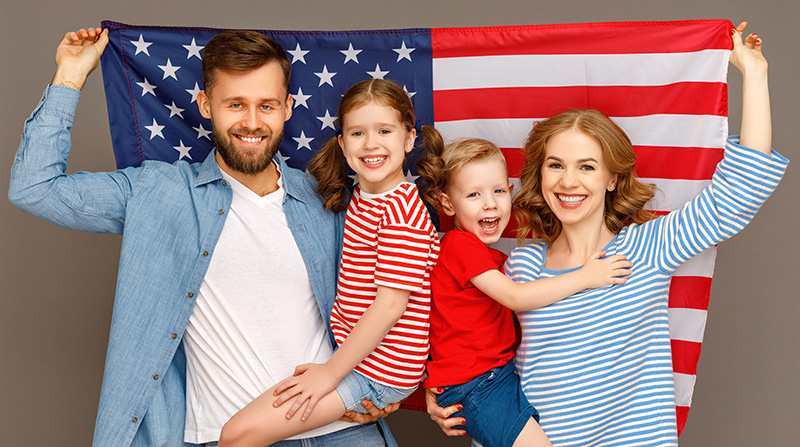
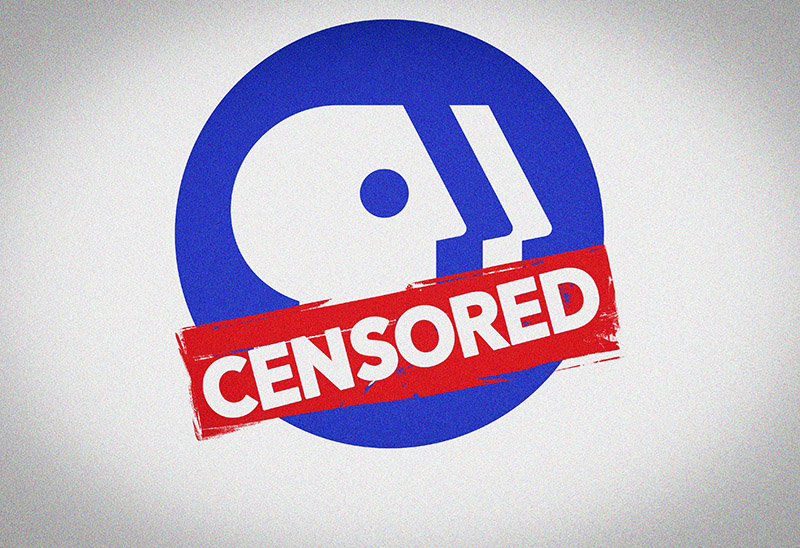
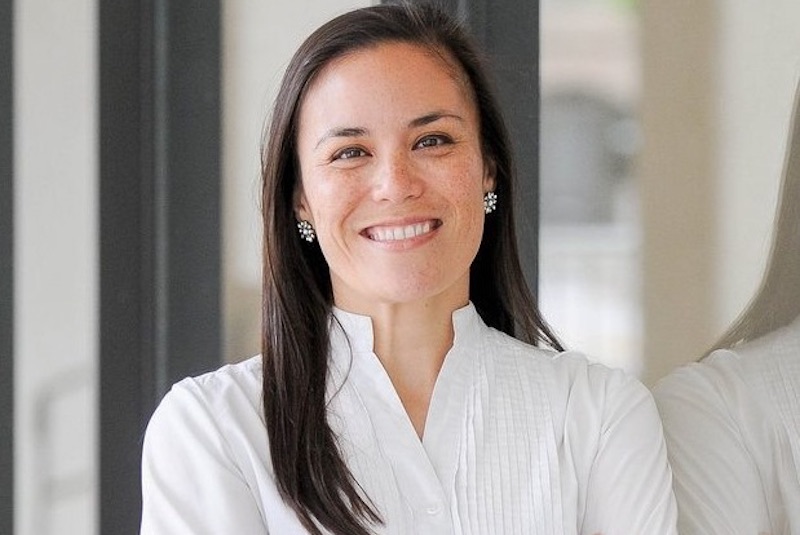














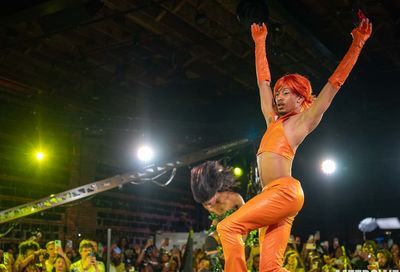
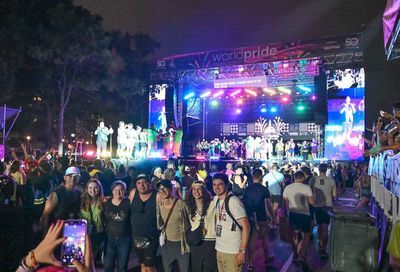
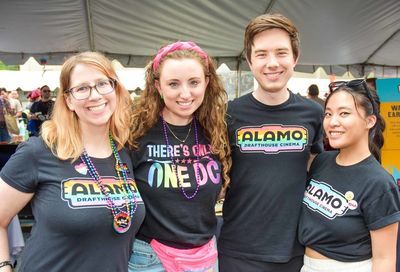
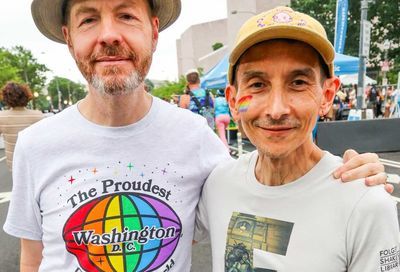
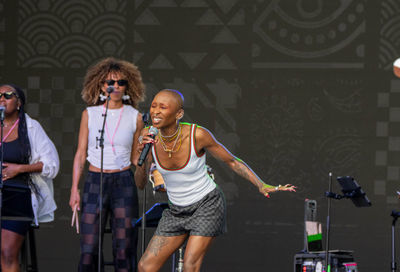
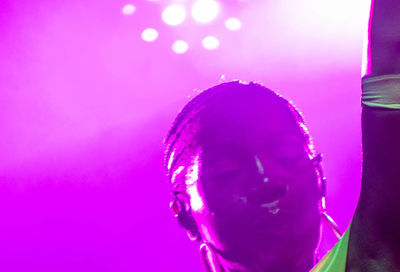
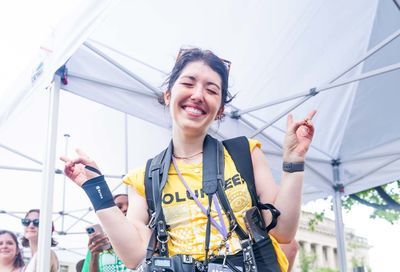
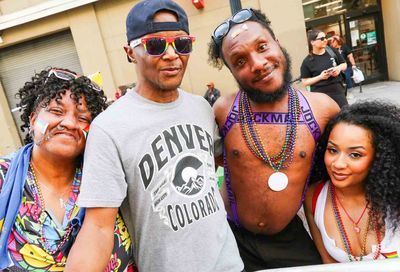
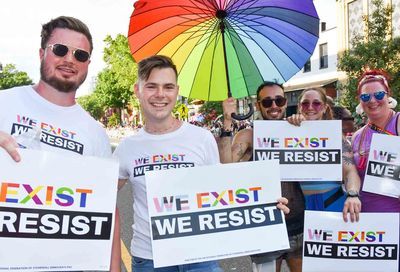
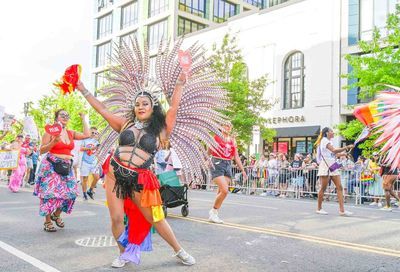
You must be logged in to post a comment.